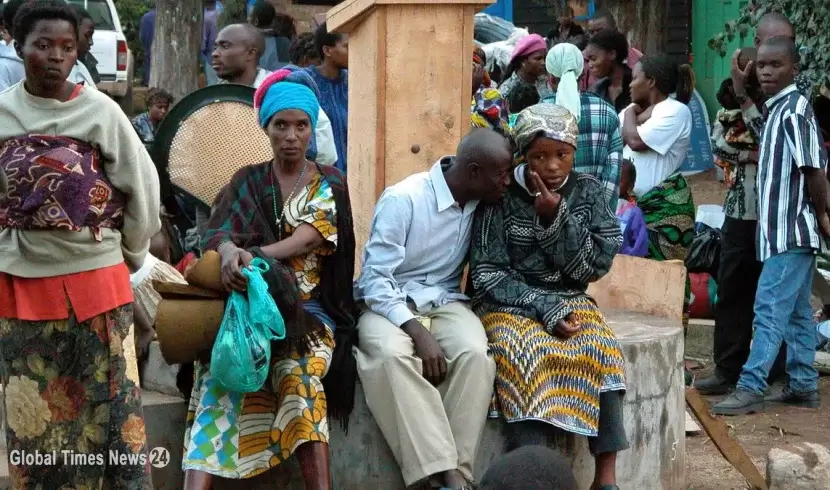In response to growing violence in the east of the long-struggling African country, the United Nations began removing its peacekeepers from the Democratic Republic of the Congo (DRC) on Wednesday, marking the end of a 25-year deployment.
The UN forces' pullout coincides with thousands of civilians being forced to flee intense fighting that has been going on in the country's unstable North Kivu province between the M23 rebel group and the Congolese armed forces (FARDC) in recent weeks. Since January, hundreds of thousands have been displaced and dozens of people have died.
Despite international fears about bloodshed by armed groups, the DRC demanded the departure of the remaining 13,500 troops and 2,000 police in areas bordering Rwanda and Burundi.
During a formal event held at the South Kivu province's Kamanyola base, the first to be handed over, the flags of the United Nations and the Pakistan peacekeepers at the base, were replaced by those of the DRC.
The UN stabilisation mission in the DRC (MONUSCO), was set up in 1999 in a bid to halt the second DRC war which pitted local forces backed by Angola, Namibia and Zimbabwe against armed groups supported by Uganda and Rwanda.
At its peak, there were 20,000 UN troops in the country. More than 270 MONUSCO peacekeepers have been killed, according to UN figures.
Kinshasa has long accused the UN forces of failing to protect civilians from the armed groups that have plagued the east of the country for 30 years.
Hundreds of thousands of deaths are blamed on the succession of conflicts since the 1990s.
Foreign Minister Christophe Lutundula has said he wants the withdrawal completed by the end of this year, though the UN Security Council has not fixed a date.
The troops are based in Ituri, South Kivu and North Kivu provinces which have suffered most over the decades. About six million people have been killed and an equal number of people displaced since 1996.
There will be three stages to the disengagement.
By the end of April, peacekeepers from 14 bases in South Kivu will leave as part of phase one. Ituri and North Kivu will come next.
Rwanda has come under fire from Kinshasa, the UN, and Western nations for allegedly providing support to the M23, which has been closing in on Goma in recent weeks. Rwanda disputes any involvement.
Although some have voiced concerns about a potential security vacuum, the locals have also criticized the UN soldiers for failing to safeguard inhabitants in the mineral-rich eastern region.
The DRC's security forces need to be strengthened and provided for civilians at the same time that MONUSCO is leaving, according to UN demands.
News ID : 2891


 Al-Shafa Hospital Entrance Struck by Israeli Missile Attack in Gaza
Al-Shafa Hospital Entrance Struck by Israeli Missile Attack in Gaza
 Ex-US Secretary of State Pompeo Joins Israeli Soldiers on the Dance Floor
Ex-US Secretary of State Pompeo Joins Israeli Soldiers on the Dance Floor
 Russia: Putin's Peace Proposals Offer Pathway to End Ukraine Conflict
Russia: Putin's Peace Proposals Offer Pathway to End Ukraine Conflict
 Drone attacks hit two western Russian regions
Drone attacks hit two western Russian regions
 Zelenskyy says he is ready for negotiations with Russian counterpart
Zelenskyy says he is ready for negotiations with Russian counterpart
 Congolese M23 rebels capture 2 North Kivu towns
Congolese M23 rebels capture 2 North Kivu towns
 Nakba 75: Palestinian citizens of Israel are exiles in their own land
Nakba 75: Palestinian citizens of Israel are exiles in their own land
 Rwanda’s decision to take in migrants not surprising: Analysts
Rwanda’s decision to take in migrants not surprising: Analysts
 Major sports events of 2022
Major sports events of 2022
 More than 800 children separated from families in eastern Dem. Rep. of Congo clashes
More than 800 children separated from families in eastern Dem. Rep. of Congo clashes
